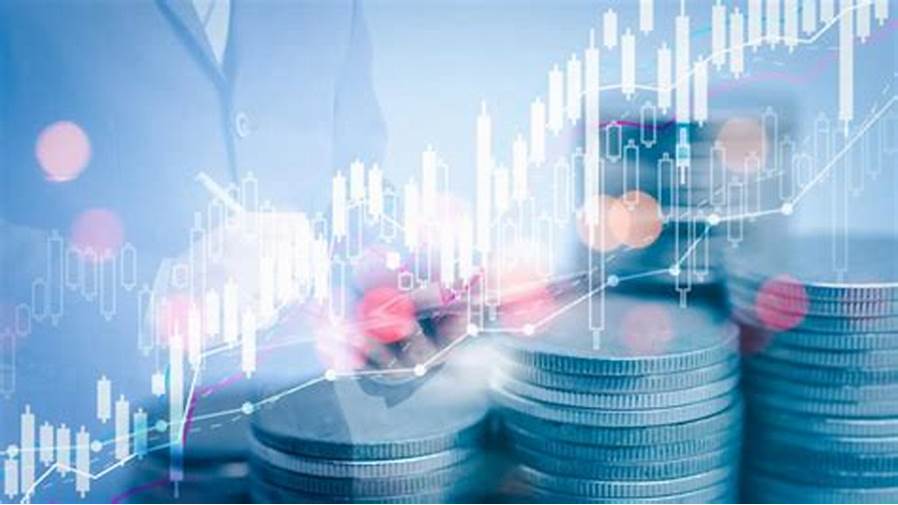On July 1, at some point during the day, the baht fell to 35.66 to the dollar, its weakest in five years. It closed at 35.63 at the end of the trading session on the first day of this month, according to Kasikorn Research Center.
The many swings of the baht
Since the 1997 Asian financial crisis, the baht has gone through four key cycles. To follow the bailout conditions set by the International Monetary Fund, Thailand, languishing in one of the worst economic crises in its history, on July 2, 1997, abandoned its fixed exchange rate policy of pegging the baht at 25 to a US dollar, as the central bank’s reserves were drained defending the currency against speculators. Once the Bank of Thailand (BOT) opted for the floating rate, the currency experienced a free fall. The baht plunged to a historic low of 56.50 per dollar on January 12, 1998.
This, however, enabled an export recovery and tourist influx, which in turn swung the baht’s fortunes around. Later the baht became very strong, and was even dubbed “super baht”, as a booming tourism industry brought in about 40 million tourists annually before the COVID pandemic struck the country in early 2020. In the middle of 2019, the baht had strengthened to 27-28 against the dollar.
However, the severe fallout from the pandemic and the sudden collapse of the tourism industry — which accounts for about 20 percent of Thailand’s gross domestic product (GDP) — has weakened the baht, pushing it to a five-year low.
Russia’s invasion of Ukraine in February this year combined with high inflation caused by supply disruptions has once again sent the baht sliding, along with other Asian currencies.
End of super strong baht
After decades of complaining that a strong baht was eroding their competitiveness because it made Thai products more expensive than that of competitors, exporters and manufacturers have other reservations now. They have recently expressed concern that the weaker baht has increased their production cost. The baht was highly volatile in May and June, and it weakened to around 34.87 to the dollar as of June 23, according to the BOT.
The weakening baht amid rising oil prices has placed Thailand at a disadvantage, as the country is a net-oil importer compared to some other countries, such as Malaysia in ASEAN.
Weakened by deficits
The weakening of the baht and the sharp rise in oil and natural gas prices can partly explain the widening current account deficit. Thailand’s current account deficit was $3.7 billion in May, up from a deficit of $3.1 billion in April, and the deficit from January to May totaled $9 billion.
The widening current account deficit is not a good sign for the country as it weakens the fiscal position. The government has run a fiscal deficit for many years. And looking forward, it is hard to see how and when the government could narrow down or balance the budget.
So far, the government has been forced to borrow more than 1.5 trillion baht to contain the economic fallout from COVID, with measures to support people and businesses affected by the public health crisis. Yet that is not the last large loan; the government will need to borrow more to finance the annual budget for many years to come. The government this year has lifted the public debt-to-GDP ratio from 60 percent to 70 percent, abandoning a previous benchmark debt threshold supposed to ensure fiscal stability.
Both the government and the BOT have defended the country’s financial position by pointing to the large foreign exchange reserves of more than $229.9 billion as of May. Investors may also agree about the leeway offered by a large buffer of hard currency assets accumulated over the years after the 1997 financial crisis.
Market intervention
With its ample international reserves, the central bank could intervene in the market to shore up the Thai currency by buying baht in the market and selling US dollars.
The latest figures point to the central bank intervening in the market as international reserves have gone down to $229.9 billion in May from $245.9 billion in December 2021.
A senior official at the BOT assured that the baht is not the weakest among regional peers. It was in the middle of the group, down about 5 percent since early this year. They argued that every currency has been impacted by the strengthening of the US dollar.
Impact of US rate hikes
The US Federal Reserve has been accelerating its rate hikes to combat fast-rising inflation. It raised the benchmark rate to a range of 1.5 -1.75 percent recently compared with the BOT’s policy rate of 0.5 percent. Another 50 to 75 basis points rise is expected soon in the US.
This made the market speculate that the Thai central bank would call an emergency meeting to jack up Thailand’s rate. But the BOT has clarified that its Monetary Policy Committee would meet as scheduled in August, and no urgent meeting is necessary.
BOT assistant governor Piti Disyatat said that the historic low rate would be hiked in line with economic recovery, what they call a process of interest rate normalization. The BOT has said a rate hike would be on a gradual basis, but senior officials at the central bank could not say by how much, as they need to make a decision based on the latest economic conditions and outlook.
Judging from their signal, many analysts predict that the central bank will raise the rate by 0.25 percentage point in August and by another 0.25 percentage point later.
So, the policy rate will rise from 0.5 percent to 1 percent by the end of this year.
A rate hike is expected to adversely impact both businesses and consumers, especially those who have debt, due to the rising cost of debt servicing.
A trade-off between the rate hike impact and price stability is inevitable.
“Price stability benefits are greater than the adverse impact of rate hike,” said Kiatipong Ariyapruchya, senior country economist at the World Bank office in Thailand.
The BOT has recently introduced new measures to support vulnerable groups. It has extended the 5 percent minimum payment — from the previous 10 percent — on credit card debt and extended the deferment of debt payment on unsecured loans borrowed via digital banking channel for another year, until the end of 2023. Debt restructuring for small borrowers is being encouraged. The BOT also has lifted a ban on financial institutions’ dividend payments.
It will require banks to increase their contributions to the Financial Institutions Development Fund (FIDF) from 0.23 percent back to the normal rate of 0.46 percent of their deposit base starting next year, aimed to lower the debt overhang of the FIDF, the BOT’s financial arm used to bail the country out of the financial institutions crisis in 1997.
A planned rate hike is expected to shore the baht up and at least prevent it from sliding deeper.
Baht vs cryptocurrencies
This year, BOT Governor Sethaput Suthiwartnarueput is not only watching vigilantly movements in the traditional exchange rate market, but he has to guard the baht against emerging private currencies known as cryptocurrencies.
He was worried that Thai people were too enthusiastic in embracing cryptocurrencies, with a large number of people pouring their money into investments in cryptos issued by foreigners and local businesses.
In March, the central bank and the Securities and Exchange Commission had to issue regulations banning the use of cryptocurrencies as a means of payment on the grounds that cryptocurrencies are too volatile, cannot store value, and could destabilize the country’s financial system. Initially, proponents of cryptocurrencies were disappointed with the BOT’s move.
But as the digital assets have been facing sell-offs, cryptocurrencies have lost their appeal when compared to the baht. Bitcoin has lost close to 60 percent of its value this year, crashing to around $19,000-$20,000 currently from over $67,500 towards the end of 2021.
By Thai PBS World’s Business Desk




